Analyzing the Cultural Environment of the Renault-Nissan Alliance
VerifiedAdded on 2022/12/27
|5
|1127
|34
Report
AI Summary
This report provides an in-depth analysis of the cultural environment within the Renault-Nissan strategic alliance, focusing on the cross-cultural issues that arise between French and Japanese employees, managers, and directors. It explores the impact of differing communication styles, management approaches, and cultural values on the alliance's operations. The report examines specific challenges such as communication barriers due to high-context vs. low-context language use, individualistic versus collectivist work styles, and varying perspectives on power distance and management hierarchies. Furthermore, it investigates how cultural differences influence the roles and responsibilities of managers and directors, and the potential for misunderstanding and conflict. The report concludes with a series of recommendations aimed at mitigating these cross-cultural issues, including promoting language training, encouraging a balance between individual and group decision-making, fostering open communication channels, and promoting equality and skills-based appointments. By implementing these strategies, the Renault-Nissan alliance can strengthen its operations and capitalize on the strengths of both cultures, enhancing its success and future opportunities in the global market.
1 out of 5
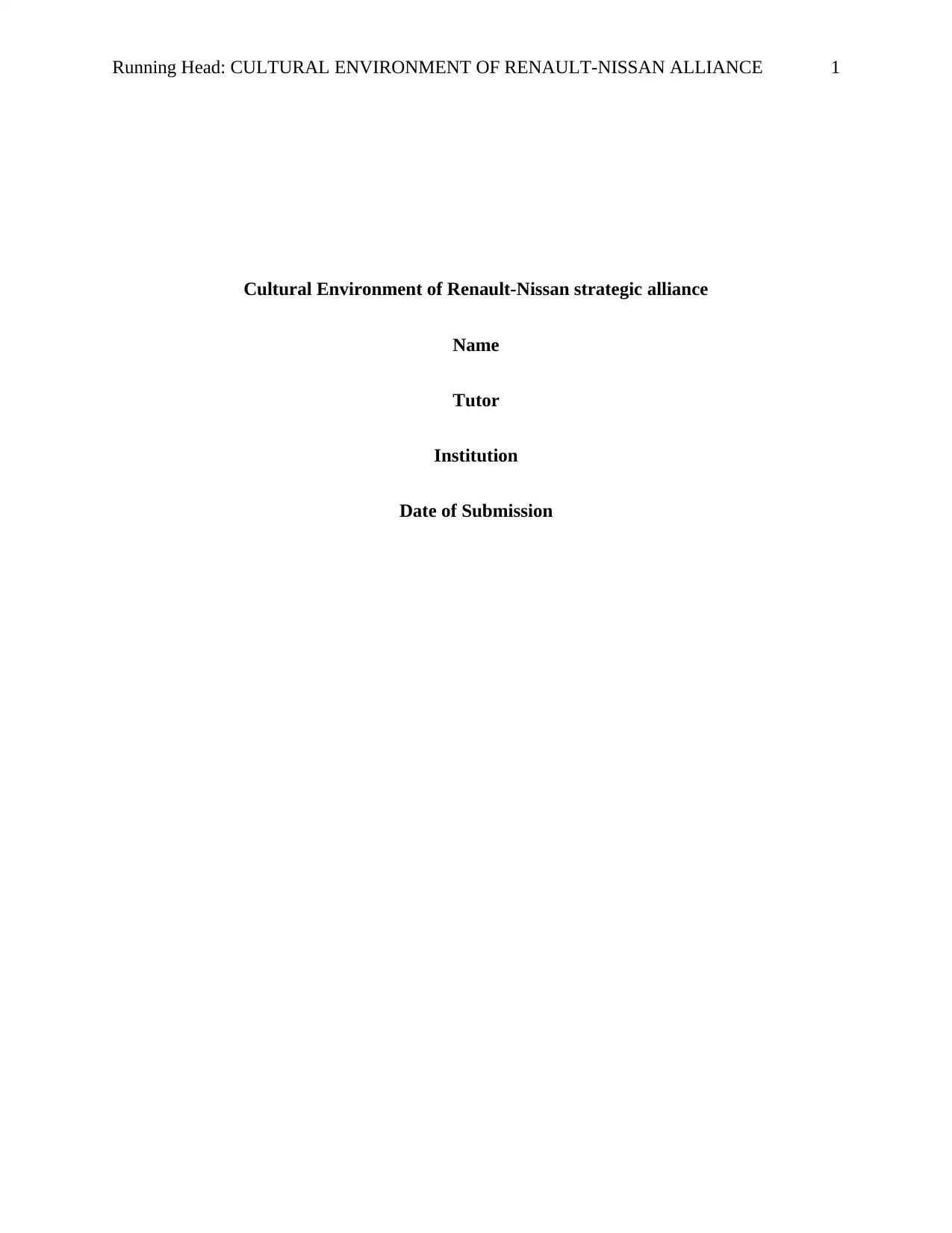
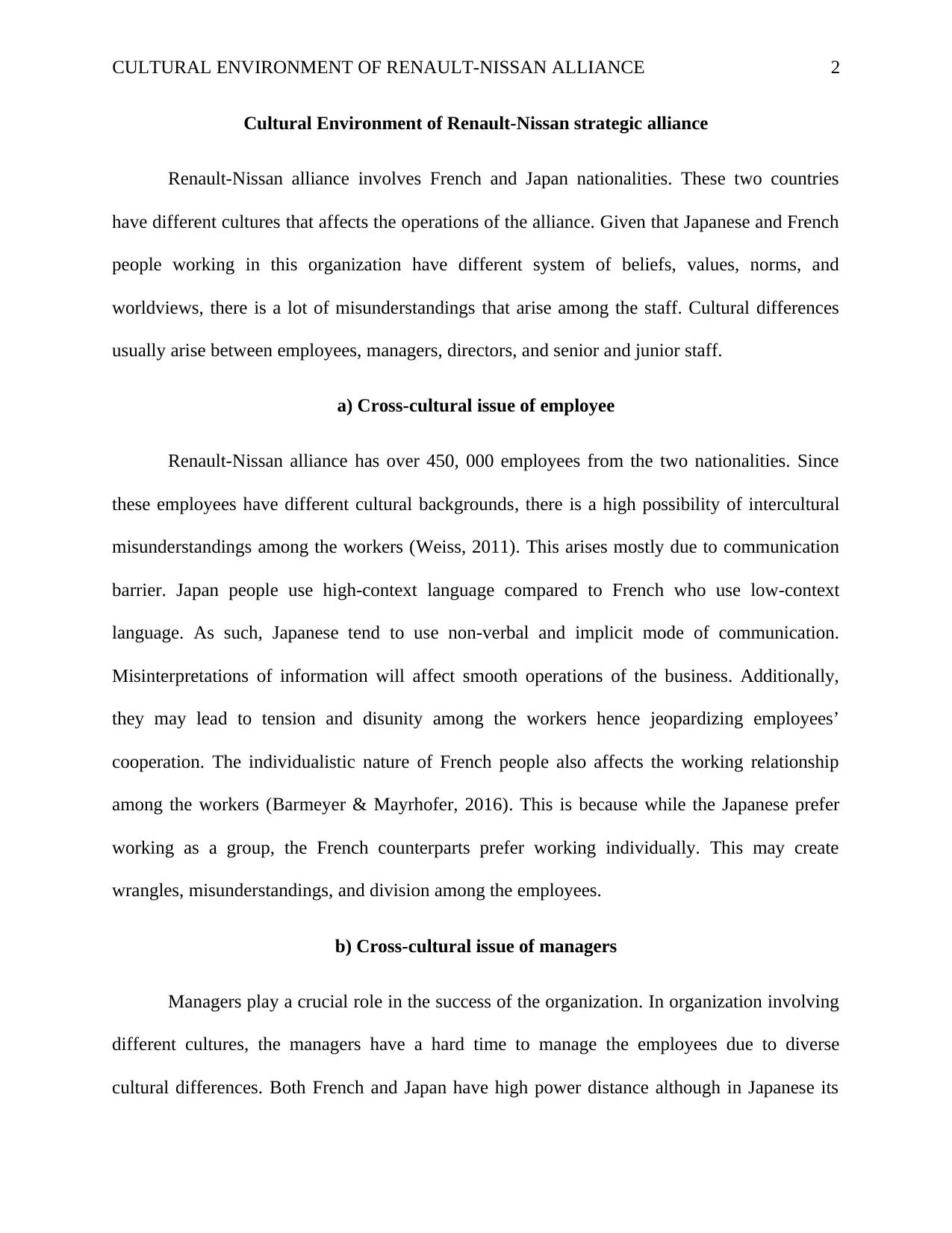
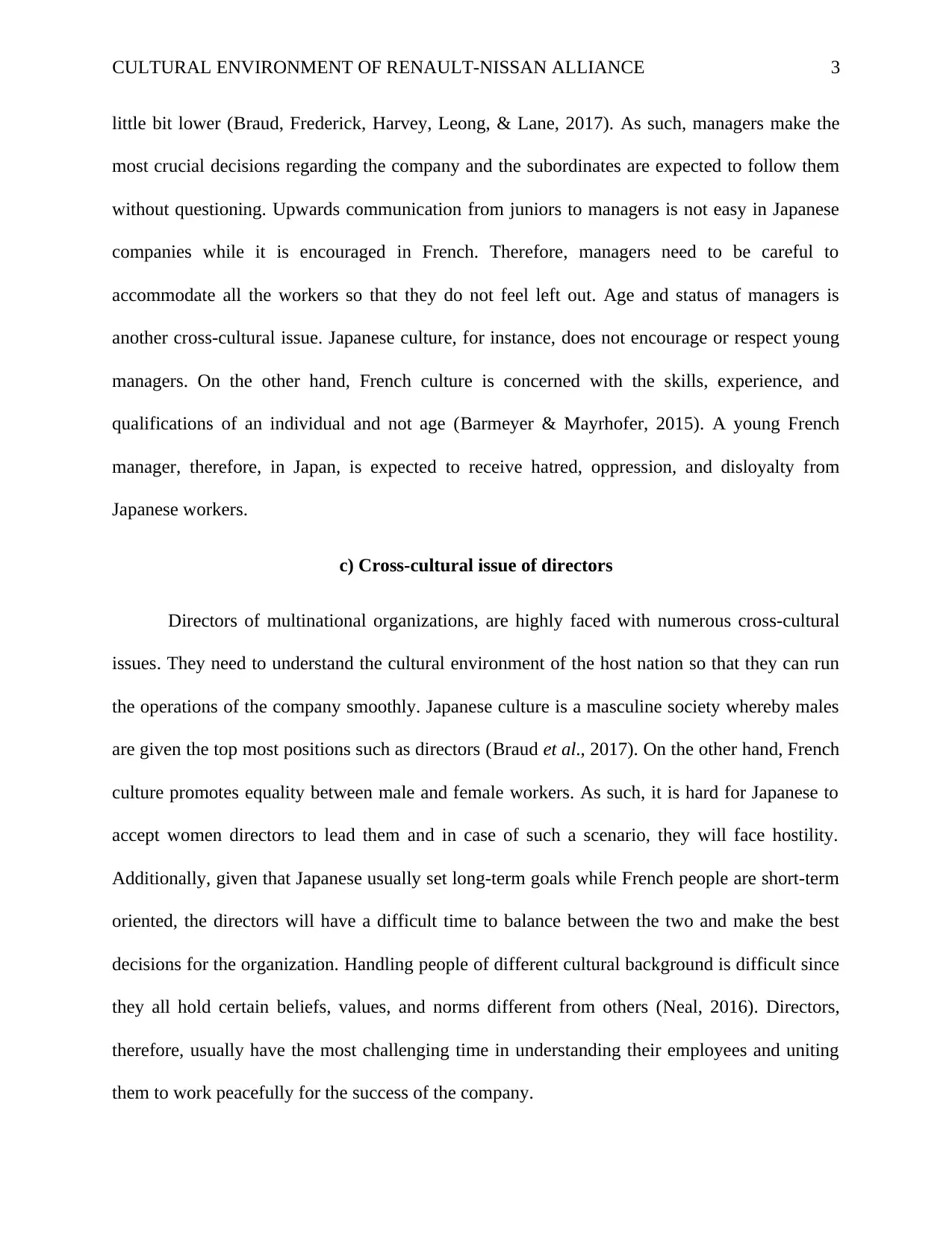

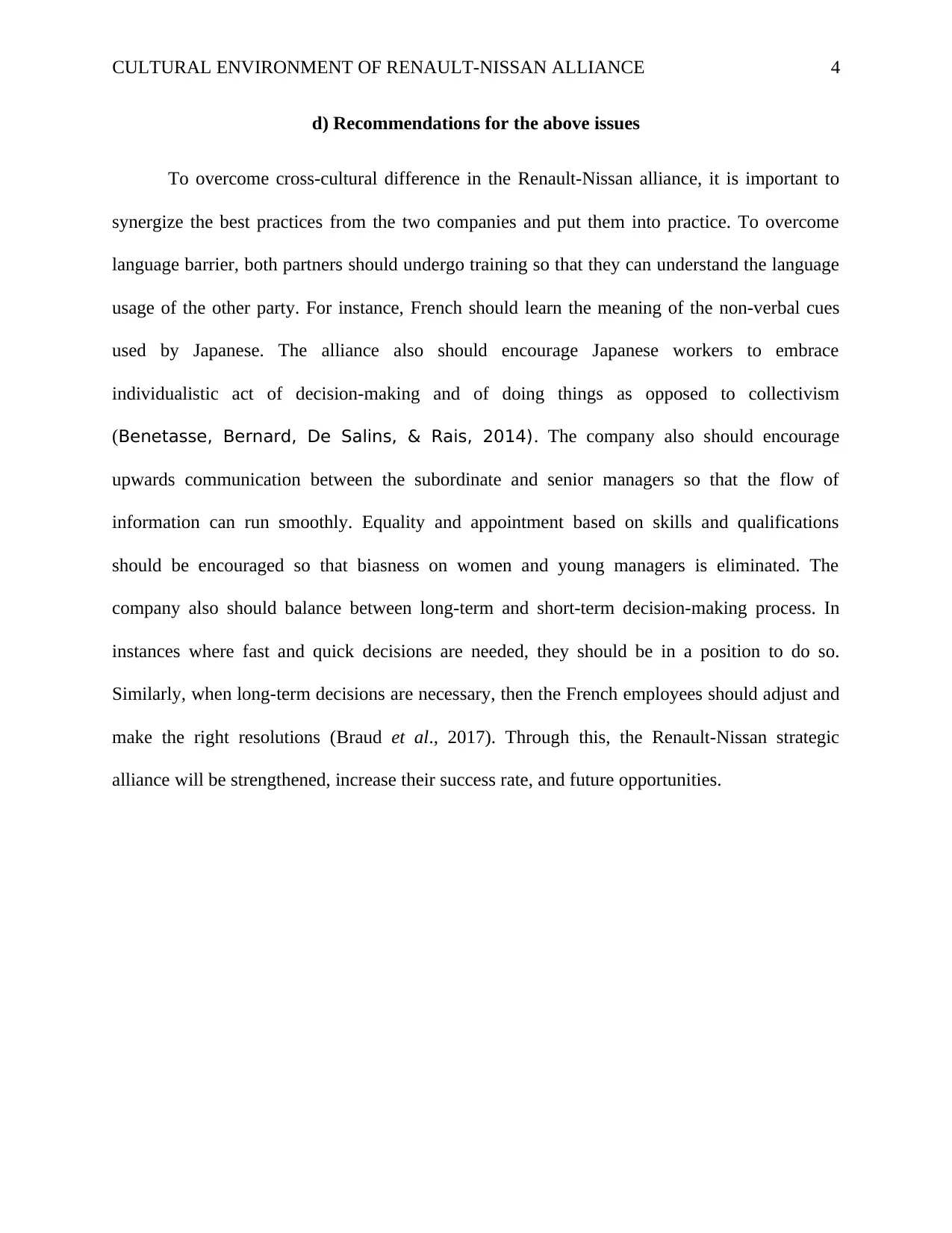
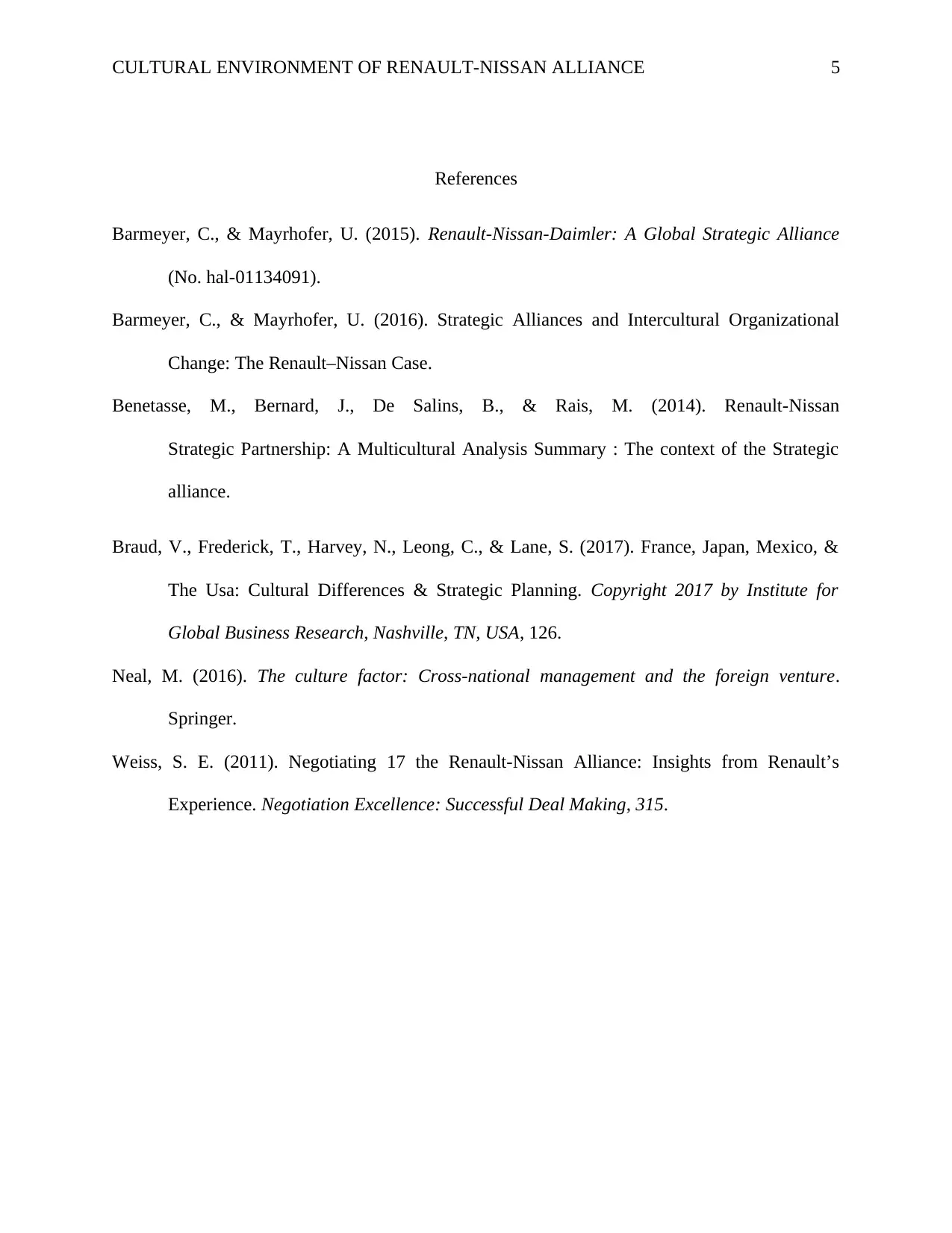



![[object Object]](/_next/static/media/star-bottom.7253800d.svg)